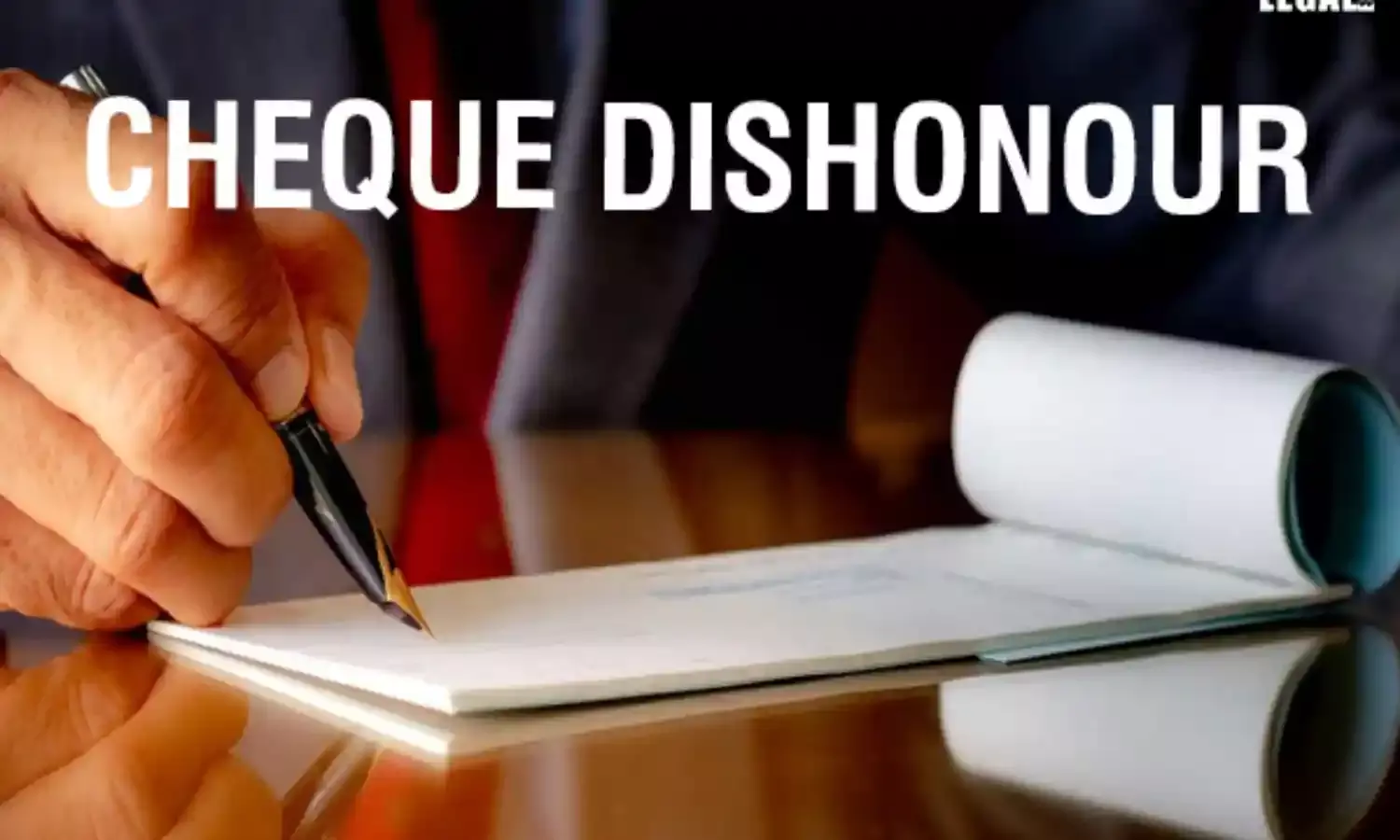Supreme Court Rules Cheque Dishonour Proceedings Do Not Constitute Continuing Cause Of Action For Arbitration
The Supreme Court recently ruled that proceedings under the Negotiable Instruments Act, 1881, for cheque dishonour do not;

Supreme Court Rules Cheque Dishonour Proceedings Do Not Constitute Continuing Cause Of Action For Arbitration
The Supreme Court recently ruled that proceedings under the Negotiable Instruments Act, 1881, for cheque dishonour do not constitute a continuing cause of action for initiating arbitration under the Arbitration and Conciliation Act, 1996 (A&C Act).
A bench comprising Chief Justice of India DY Chandrachud, Justices JB Pardiwala, and Manoj Misra dismissed an arbitration petition seeking the appointment of an arbitrator eleven years after the dishonour of cheques. The Court held that the claims were barred by limitation.
The Court observed, "The initiation of arbitration and criminal proceedings under Section 138 of the Negotiable Instruments Act, 1881, are separate and independent proceedings arising from two distinct causes of action. Therefore, the initiation of proceedings under Section 138 does not imply a 'continuing cause of action' for the purpose of initiating arbitration, as erroneously contended by the petitioner."
The case involved Elfit Arabia, a UAE-based entity, which had been approached by the respondents to finance a telecommunication project undertaken by Telesuprecon Nigeria Limited (TNL). A Memorandum of Understanding (MoU) was signed on June 1, 2004, with TNL represented by a director of Concept Hotel Barrons Limited, the first respondent. According to the MoU, funds were disbursed on several occasions, and a supplementary MoU was executed on August 2, 2006, detailing repayment terms and including a lien on respondents' property and the issuance of cheques.
On May 7, 2011, fifteen cheques amounting to Rs. 7.30 crores were allegedly dishonoured. A legal notice was issued on June 2, 2011, demanding compliance with the MoU and payment.
However, the petitioners did not invoke arbitration until eleven years later, on July 4, 2022. After the respondents failed to respond to a subsequent arbitration notice on October 27, 2022, the petition was filed before the Supreme Court under Section 11(6) of the A&C Act.
The respondents argued that the claims were barred by limitation and should be dismissed. The petitioners contended that the ongoing proceedings under Section 138 of the NI Act implied a continuing cause of action. However, the Magistrate acquitted the respondents on July 23, 2018, and an appeal against this decision is pending before the Bombay High Court.
The Supreme Court noted that while the determination of whether a claim is barred by limitation is usually within the arbitral tribunal's domain, the Court may intervene to reject clearly non-arbitrable or dead claims. The Court emphasized that arbitration should not be used to adjudicate claims that are evidently time-barred.
Referring to principles established in Vidya Drolia v. Durga Trading Corporation, the Court reiterated that it may intervene at the referral stage if a claim is ex-facie time-barred. The Court found that the notices invoking arbitration in July 2022 and October 2022 were issued eleven years after the cause of action arose in 2011, exceeding the three-year limitation period specified in Article 55 of the Limitation Act, 1963.
As such, the Supreme Court concluded that the arbitration petition was hopelessly barred by limitation. The Court also rejected the argument that the separate proceedings under Section 138 constituted a continuing cause of action for arbitration. The Court thus dismissed the petition, ruling that arbitration would compel the parties to arbitrate a "deadwood" claim that was clearly time-barred.

